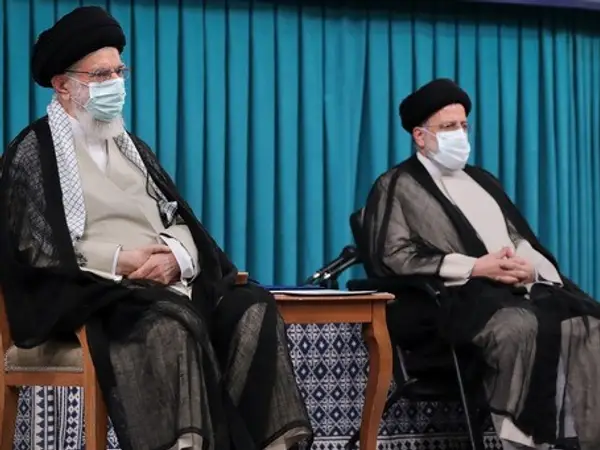The official Iranian government news agency IRNA has reiterated three conditions prior to the resumption of nuclear talks with world powers in Vienna on Monday.
In a long article published Saturday defending Iran’s nuclear diplomacy, the Islamic Republic News Agency said that in the last two months Iran’s position crystalized around three pre-conditions, after the new government of President Ebrahim Raisi reviewed the previous six rounds of talks in Vienna from April to June.
First, the United States, “as the guilty party for the current situation, should accept to retrace it steps back from the path it has travelled.” Second, to turn back from this path, the US should lift all sanctions imposed since its exit from the JCPOA in 2018, “all at once and in an effective manner.” Third, to provide a guarantee that no US government in future will repeat what former President Donald Trump did by withdrawing from the agreement.
As Tehran listed its new conditions, it got a boost of support on Friday from Russia and China, two signatories of the Joint Comprehensive Plan of Action, or JCPOA.
Russia criticized the United States for threatening Iran with diplomatic escalation at the International Atomic Energy Agency (IAEA) in case Iran did not improve cooperation with the UN nuclear watchdog. On Thursday the US expressed deep disappointment at the failed trip of IAEA chief Rafael Grossi to Tehran on Tuesday, when Iran refused to fully cooperate with the nuclear watchdog.
Speaking at a joint news conference with Chinese ambassador Wang Qun, Russian ambassador Mikhail Ulyanov called the US threat to convene an extraordinary IAEA board meeting to censure Iran "not helpful" and "counterproductive".
"Our American counterparts lose patience. But I believe for all of us we need to control our emotions. Probably the US did not communicate with the Iranians for a very long time and forgot that Iranians don't do anything under pressure. If they are under pressure, they resist," Ulyanov told reporters.
His last comment was a sign of strong backing for Iran and if Russia follows this policy when the talks begin on Monday, a clear break will emerge between the West and Iran and its allies.
On Wednesday, IAEA director general Rafael Grossi admitted that the agency was unable to inspect the production of advanced centrifuges at the Karaj facility as it did not have cameras and other monitoring equipment installed at the site.
The continued refusal of the Islamic Republic to cooperate with the agency has prompted the U.S. and its European allies to threaten Iran with a special board meeting before the end of the year.
With reporting by AP
